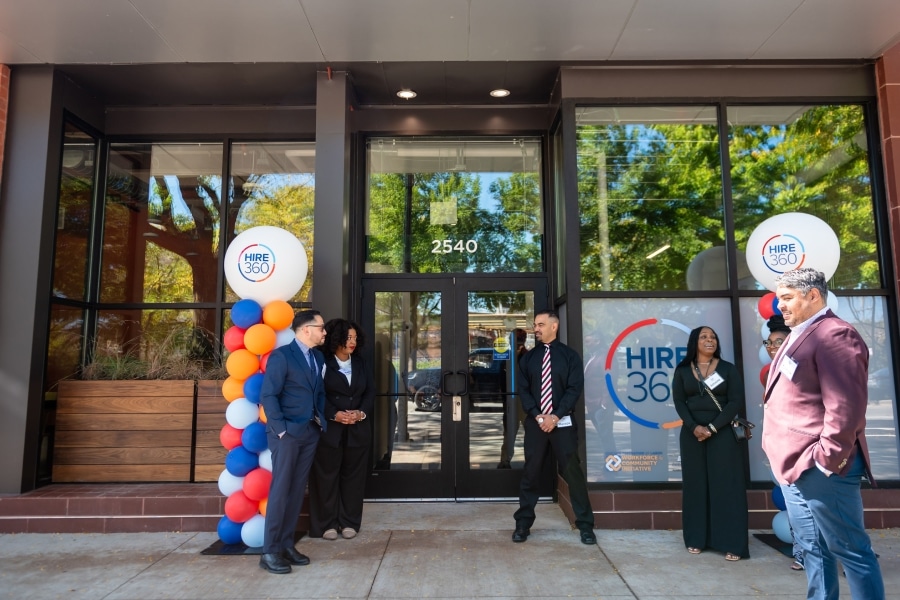For Ann McNeill, founder and chair of the National Association of Black Women in Construction (NABWIC), it all starts with community. Since 1991, NABWIC has been helping Black women find community in the sometimes-isolating world of construction.
Finding her way into the construction world via an unconventional path, McNeill was committed to connecting with other Black women, uplifting and encouraging each other through networking events, mentorship and programs designed to inspire participants’ love for the construction world.
A hobbyist background
McNeill started her career as an office worker far from the construction world. “I have an undergraduate degree in accounting and a master’s in finance,” she said. “So when I graduated from college, I really only started learning about doing construction after my husband and I bought our first home.”
McNeill and her husband quickly got bit by the building bug, an experience that led them to start investing in real estate. “We bought the property across the street; we bought the property down the street; and in short, short order we had three or four properties on the same street, all for sale by owner.”
Finding their new properties in need of repair, McNeill and her husband started out by learning the basics. “We started going to the library and learning,” she said. “And the more we worked on doing repairs ourselves, the more we realized the money we saved.”
McNeill’s passion for making smart financial choices quickly led her to go deeper into the construction world. One day, she was talking with her husband, who said if he could start over he would go to trade school.
“We were taught to go to school and get a good education, get a good corporate job,” McNeill said. “But many of the people in the trades we were meeting didn’t finish college or never went to college; didn’t finish high school, then got a trade, and what they charged us per hour was more than we made a day.”
McNeill took her husband at his word and decided to go back to school herself, attending trade school to learn her construction craft from the ground up, working for a large contractor before striking out on her own as a small business owner. “I grew up with a father who owned his own business, and he taught me how to drive heavy equipment and do all kinds of things,” McNeill said. “So it wasn’t out of the ordinary. It was just something else to learn. I never looked at it, any of it, as male, female. I’d never look at it like that because that’s not how I was raised.”
Creating a community
Despite her reluctance to limit herself to categories of race and gender, as McNeill grew in her career she began to notice how exceptional her presence in the construction business was.
“As I began to travel, I began to realize I didn’t see very many Black women that look like me in various industry groups,” McNeill said. “I was involved with all of the white construction organizations, all of them. ABC, AGC, women in construction—you name it. I was a member of everything. And I always noticed at all these organizations I was in there was always one Black woman and me.”
RELATED:
This experience of her own exceptionalism led McNeill to start making plans to bring together the other Black women she met on her travels to create systems of encouragement and support. “I began to realize, wait a minute—what if I just begin to have lunch,” McNeill said. “I could pull something together, and just try to get everyone together for lunch.”
McNeill invited 10 women to have a luncheon in her office, where they could discuss the state of the industry. This simple gesture led to almost instantaneous growth for NABWIC. “One thing led to another, that led to another, that led to another, that led to another,” McNeill said. “And now, we’ve gone from having lunch with 10 women to meetings in 15 cities all over the country.”
Contacts lead to contracts
In founding NABWIC, McNeill’s primary goal was creating a space that could foster conversations, like the one she had at that first luncheon all those years ago.
“My desire is to have a place for Black women to be able to connect in four different areas,” McNeill said. “First, education. We go into schools and do industry days, mentor programs for Black girls, participate in STEM programs and do other activities to bring people together. The second pillar are Black women who control any kind of procurement in the private sector. The third is the Black women who are in the public sector. So, your Black caucus for the city, the county, the state, your Congressional Black Caucus women, the Black women that control procurement in these public agencies all over the United States. The fourth pillar is those of us who are in business or in the trade.”
By focusing on such a variety of specialties and forming strategic partnerships with other organizations, McNeill said that NABWIC members are able to be stronger together. “The bottom line is, we make connections between the major engineering firms, the contractors and our members and our clients,” she said.
Encouraging entrepreneurship
While NABWIC is dedicated to supporting Black women on their professional journeys at the highest levels of construction and urban planning, McNeill also said that the organization focuses on helping those who haven’t found their way to success yet get a head start.
“It’s also about creating a pipeline for people that never went to college or high school,” McNeill said. “The trades people can be in the trades and make a very good living. They can be in the trades, they can start a business, but they need mental support. You got to persist; you got to have faith; you got to have a desire; you have imagination and all of these other principles that, when you mix them together, it spells success.” McNeill said that the NABWIC helps uplift young Black women by providing alternative pathways to success.
Ultimately, McNeill said that she believes building relationships are the key to encouraging more Black women to enter the construction industry.
“Contacts turn to contracts at all levels,” she said. “When we have contracts, when our members have contracts, our members are going to hire their family and friends. When we don’t have contracts, I don’t care what kind of pipeline you talk about, I don’t care about a mentor protege program; it means absolutely nothing if the members don’t have work. We create an environment for those relationships to be built.”











